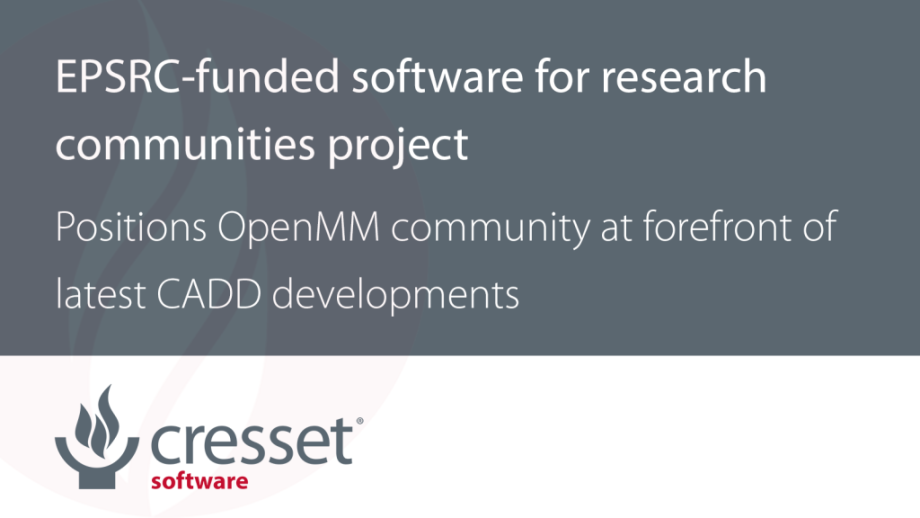Atomistic simulations constitute one of the primary uses of high-performance computing in research, as they establish the foundation of Research and Development procedures in the chemical and biological sectors. Among the plethora of open-source academic software, OpenMM has the quickest rate of growth due to its excellent tradeoff between extensibility via a robust user interface, and performance on GPUs. This has caused the OpenMM user base, which was initially focused on the biomolecular simulation community, to expand rapidly. Currently, the user base has spread to a wide range of related fields, such as materials modeling, quantum chemistry, structural bioinformatics, chemoinformatics, artificial intelligence, and machine learning. This growing demand for training and support can no longer be maintained by the current OpenMM developers, so assistance is needed from the OpenMM community.
The Flare™ structure-based and ligand-based drug design platform has a plugin interface that enables incorporation of cutting-edge third-party software (including OpenMM) to introduce new capabilities. More specifically, the Molecular Dynamics and Free Energy Perturbations (FEP) components of Flare are based on the SOMD software. SOMD is developed by Prof Julien Michel at The University of Edinburgh (advisor to Cresset) and uses the OpenMM library. Due to the vital role which OpenMM plays in our Molecular Dynamics (MD) simulation infrastructure, we have engaged in extensive research and development around it. Recently, Prof Michel, in collaboration with a group of esteemed academics, submitted a successful Engineering and Physical Sciences Research Council (EPSRC) application to support a more sustainable, community-driven development model of OpenMM.
By facilitate maintenance of the OpenMM this initiative will encourage the OpenMM library’s long-term viability by:
- Providing support from our product development team to reengineer and develop the OpenMM library
- Applying our professional software quality assurance processes to OpenMM code to ensure that new code follows industry grade standards
- Benchmarking OpenMM pre-releases on our cloud
- Working closely with the OpenMM development team to contribute bugfixes and merge features added by the Cresset team into the main OpenMM release
- Testing training materials developed by the OpenMM team
- Inviting the OpenMM team to run a workshop on OpenMM programming as part of our ongoing interaction with our customers
- Advertising OpenMM releases and new science enabled by the functionality implemented by the OpenMM team
- Attending steering meetings to review project progression
- Providing mentoring and advice on building and maintaining research communities
Cresset are proud to support this endeavor, alongside the other collaborators, to position the OpenMM user community at the forefront of the latest developments in the area of computer-aided drug design (CADD).



